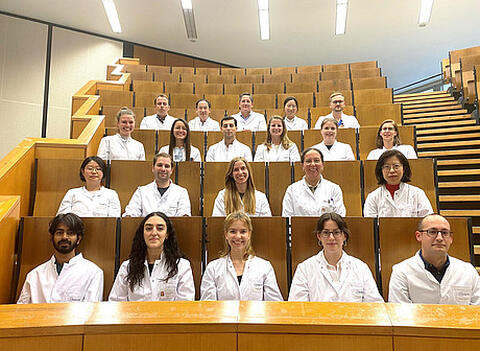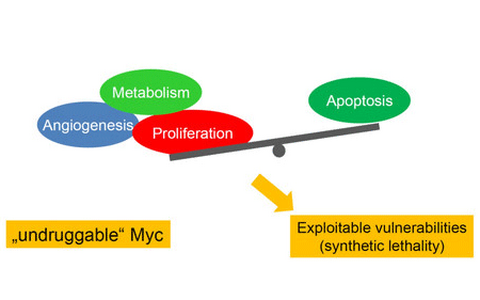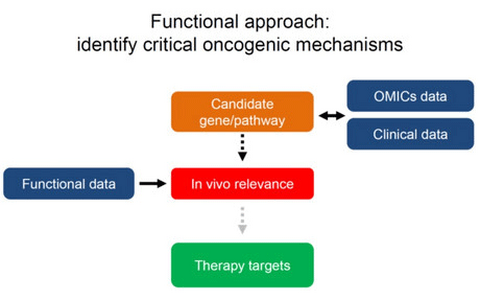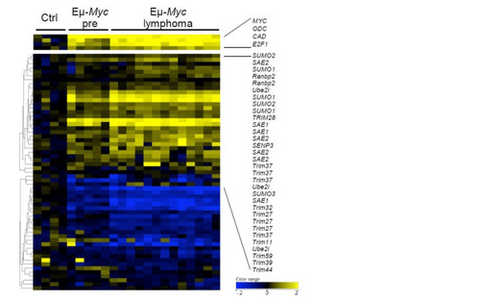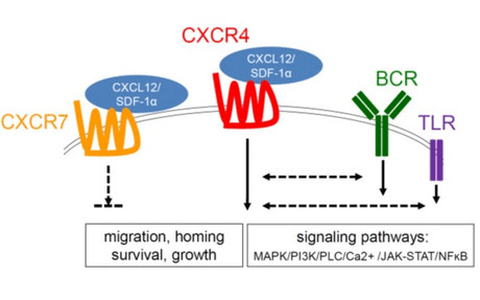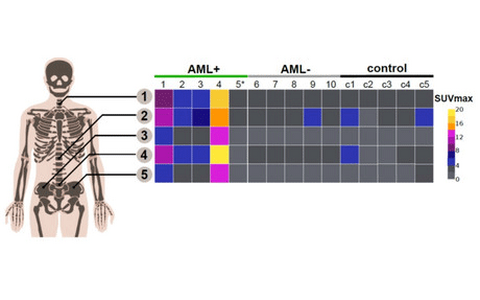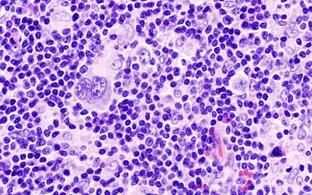
Keller Lab
Mechanism-based Cancer Therapies
Profile
Cancer originates from normal cells through genetic and epigenetic alterations. By employing forward genomic screening we start from a known gene mutation or cancer-associated condition and investigate the path that results in a manifest malignancy. Major further focus areas of the lab include: oncoprotein-induced disturbance of post-translational protein modifications, in particular SUMOylation, and sensing of DNA damage; constitutively activated B-cell receptor and chemokine receptor signaling; and molecular cancer imaging and theranostics.
Team
Group Leader
Prof. Dr. med. Ulrich Keller
Team
Stefanos Bamopoulos, Dr. med., Clinician Scientist
Francis Baumgartner, Dr. med., Clinician Scientist
Uta Demel, Dr. med., Clinician Scientist
Stefan Habringer, Dr. med. Dr. univ., Clinician Scientist, Team Leader
Maximilian Holz, MD Student
Konstandina Isaakidis, M.Sc., Lab Manager
Kaiting Jiang, MD Student
Hazal Köse, PhD Student
Hongyu Liu, Dr. rer. medic., Staff Scientist
Anna Meurer, Clinician Scientist
Markus Schick, Dr. rer. nat., Associated Scientist
Laura Schmalbrock, Dr. med., Clinician Scientist
Daniel Steiert, PhD Student
Isabelle Träger, MD Student
Sara Uhan, PhD Student
Philine Wegner, PhD Student
Matthias Wirth, PD Dr. rer. nat., Scientist, Team Leader
Yan Zhao, Dr. rer. nat , Scientist
Chuanbing Zang, Dr. rer. medic., Staff Scientist
Laura Ferreiro Vazquez, PhD Student
Amelie Gasper, PhD Student
Luca Hummel, PhD Student
Paul Jung, Clinician Scientist
Michael Korenkov, Clinician Scientist
Felix Stuckenbrok, PhD Student
Antonia Busse, PD Dr. med., Clinician Scientist, Team Leader, Sub-PI
Sarah Al-Tabatabaee, MD Student (Busse group)
Nese Cakmak, Dr. rer. nat., Scientist (Busse group)
Cäcilia Freund, Technical Assistant (Busse group)
Corinna Grunert, Dr. rer. nat., Scientist (Busse group)
Paula Mühlschlegel, MD Student (Busse group)
Luisa Ohlmeier PhD Student (Busse group)
Simone Rhein, Dr. rer. nat., Scientist (Busse group; affiliation EPO GmbH)
Jon Hergueta Sanchez PhD Student (Busse group)
Emina Sivro, PhD Student (Busse group)
Stefanos Timioloitis, PhD Student (Busse group)
Sarvenaz Yaghobramzi, Physician (Busse group)
Melanie Winiarski, Technical Assistant (Busse group)
Research
Publications
News
Funding
- Berlin Institute of Health (BIH)
- Berliner Krebsgesellschaft
- Bundesamt für Risikobewertung (BfR)
- Bundesministerium für Bildung und Forschung (BMBF)
- Deutsche Forschungsgemeinschaft (DFG)
- Deutsche Krebshilfe
- Else Kröner Fresenius Stiftung (EKFS)
- German Cancer Consortium (DKTK)
- Sonnenfeld-Stiftung
- Stiftung Charité
- Wilhelm-Sander-Stiftung

